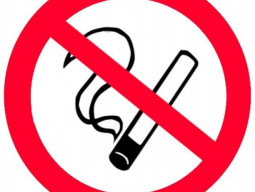
The Pakistani subsidiary of British American Tobacco Company reported an after-tax profit of Rs4.7 billion or Rs18.5 per share for the first half of 2015, increasing its bottom line by two-thirds compared to Rs2.8 billion or Rs11 per share in the corresponding period of 2014.
This is the highest income PTC has ever reported since it launched operations in the country.
The multinational tobacco giant, which pays more in taxes to the government than what is paid by the entire salaried class combined, contributed Rs49 billion - also its highest ever - to the national exchequer in the form of duties and taxes for the period under review. This is a 17% increase over the same period of previous year.
Pakistan’s largest tobacco manufacturer, which accounts for more than half the market, saw its net sales increase by 23% to Rs24.6 billion during the period under review compared to Rs20 billion in the first six months of 2014.
“This result was well above market consensus estimates,” Topline Securities said in its report, adding the company’s net profit was driven by record high gross margins of 41%, a year-on-year (YoY) increase of 543 basis points.
Decline in international oil prices helped improve macroeconomic conditions, which led to higher consumer spending during the six-month period, the report said. As a result, PTC’s sales increased by 23% YoY.
On a quarter-on-quarter basis, net sales grew by 17% to Rs13.2 billion while after-tax profit registered a growth of 27%. On a YoY basis, sales and net earnings for the quarter ended June 30, 2015 were up 23% and 65% respectively, it said.
The company has posted five-year (2010-14) sales and profit compound annual growth rate of 13% and 10% respectively.
Pakistan is one of the biggest markets in Asia in terms of cigarette consumption with an estimated annual consumption of 81 billion sticks - that is 422 cigarettes per person per year.
“With a 2% rise in Pakistan’s population in 2015, the company’s volumes are expected to reach an estimated 45 billion sticks,” according to Topline’s report.
The government has increased federal excise duty (FED) on tobacco to 63% in the new budget. However, Topline said cigarette manufacturers have already increased prices by 5% to 10% on average to pass its impact on to the consumer.
Published in The Express Tribune, July 23rd, 2015.
Like Business on Facebook, follow @TribuneBiz on Twitter to stay informed and join in the conversation.












































COMMENTS (4)
Comments are moderated and generally will be posted if they are on-topic and not abusive.
For more information, please see our Comments FAQ